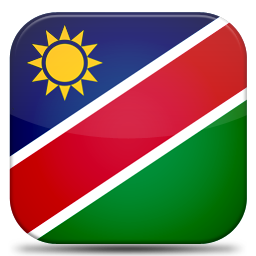Needs assessment mission
 A NAM to Namibia, Windhoek was deployed between 1 to 8 of May 2013 by Mathieu Merino, Election and Conflict Management Advisor, supported by the Namibian ESN-SA member organisation NANGOF Trust (Namibian Non-Governmental Organisations' Forum Trust). Among the range of principle interlocutors the Electoral Commission of Namibia (ECN), the Law and Development Reform Commission, representatives from political parties, journalists, civil society groups, and diplomatic community, were met. NANGOF Trust has a mandate for policy advocacy, network and coordinating, and to strengthen the capacity of its members through various activities conducted regionally and nationally. It has currently 166 registered members (May 2013). During the NAM, activities of 12 CSOs involved in Human Rights/Democracy have been focused in agreement with NANGOF Trust.
A NAM to Namibia, Windhoek was deployed between 1 to 8 of May 2013 by Mathieu Merino, Election and Conflict Management Advisor, supported by the Namibian ESN-SA member organisation NANGOF Trust (Namibian Non-Governmental Organisations' Forum Trust). Among the range of principle interlocutors the Electoral Commission of Namibia (ECN), the Law and Development Reform Commission, representatives from political parties, journalists, civil society groups, and diplomatic community, were met. NANGOF Trust has a mandate for policy advocacy, network and coordinating, and to strengthen the capacity of its members through various activities conducted regionally and nationally. It has currently 166 registered members (May 2013). During the NAM, activities of 12 CSOs involved in Human Rights/Democracy have been focused in agreement with NANGOF Trust.
Generally the capacity of CSOs to plan projects and programmes, and effectively implement, monitor, evaluate and report on their progress is still limited in 2013. Most CSOs have limited operational capacity crucial for effective programme management and service delivery – financial management, project cycle management, project monitoring and evaluation, proposal writing, resource mobilisation and reporting, and yet there are limited capacity development programmes targeting CSOs. The current education and training programmes in the country do not cater for the skills needs of CSOs. Thus, over the last 22 years, Namibia has managed a total of 11 elections for the various representative bodies at national and sub-national level. Voter turnout for national and presidential elections has declined from a 97% turnout for the Constituent Assembly elections in 1989, to a 69% voter turnout in the last elections held in 2009 (only 38% in 2010 elections). Namibia is now gearing up for another round of elections (presidential and parliamentary) in November 2014.
TRAININGS
Please click on the title of the training for more information:
- Participation of the In-Country Researcher for Nambia to the First Observatory meeting and LEAD Curriculum development, 12-18 December 2015, Gaborone
- BRIDGE TTF: 25 November - 6 December 2013, Windhoek
Research Activity
Please, click here to access the abstract of the research paper

